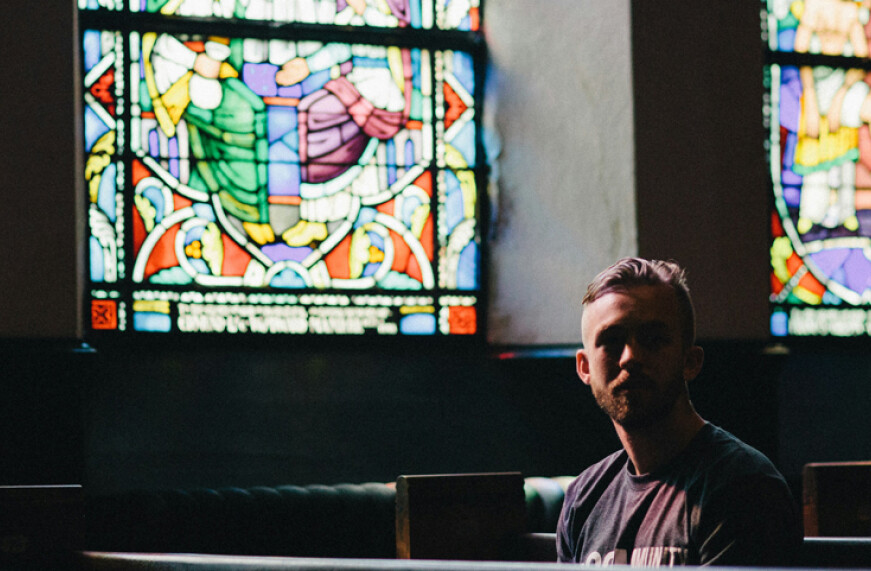As we continue through Hebrews, we are continually called to fix our eyes on Jesus who has championed our cause (2:10) and is the forerunner (6:20) who has gained heaven for his people. This week yet again (Hebrews 12:3–11), we will be encouraged to consider him (12:3) as we endure (12:7) the various trials that come our way. While we will dive into a broader taxonomy of suffering on Sunday, I want to pause and think about a particular trial that many of us endure, namely adult children who are not walking with the Lord.
There is very little pain like the pain of a child who does not know the sweetness of the Lord that we have come to cherish. Whether, due to circumstances, they have never walked with the Lord, or they have over the course of their lives left a childhood faith, our hearts break over their loss. Those who have made a profession of faith in the past, gone on missions, showed fruit of a truly converted heart and relationship with God, but now are cold or embittered are especially difficult. How do we navigate such loss and disappointment? Is there any hope? I am not proposing a complete treatise on the subject but pray a couple of thoughts will both correlate with the message of Hebrews and offer some hope for drooping hearted parents.
Let us start with the fruit that we have observed in our kids lives when they were young. I sometimes wonder if, even we — card carrying, saved-by-grace-not-by-works, Reformed Christians — look too much to observable fruit as the basis of our hope? Ultimately the fruit produced in any life is the overflow of rootedness in Christ and is only produced in its season. The problem is, if we only look to the production of our lives, we are essentially trusting in works. While I wholeheartedly endorse a striving to produce fruit in keeping with repentance, we dare not base hope of salvation on the fruit produced, or the lack of fruit observed. Even our own professions of faith, while important and called for, are in themselves insufficient to hang our assurance on.
The trap for parents is that if we solely look to our children for indications of salvation, either good or bad, we are going to bounce between despair or denial. So where do we look? Like Job (cf. Job 1:5), we keep holding them before the Throne of Grace. Their salvation is in the hands of the Lord. If God has set his love on them: addiction or bitterness, depression or profligacy will not be the end of their story. Perhaps in the end the only “fruit" that they will show will be a cry of “Lord, help me …" from the midst of the pigsty. But it is enough. It was enough for the dying thief who was held by the Lord throughout his life, only to produce fruit at the very end; his season was incredibly short.
So where does this leave us? It leaves us to throw ourselves on our very benevolent, long suffering, compassionate God. When YHWH shows himself to Moses in the context of the Israelites idolatry with the golden calf this, is how he introduces himself: “The LORD, the LORD, a God merciful and gracious, slow to anger, and abounding in steadfast love and faithfulness, keeping steadfast love for thousands, forgiving iniquity and transgression and sin, but who will by no means clear the guilty, visiting the iniquity of the fathers on the children and the children’s children, to the third and the fourth generation.” (Exodus 34:6–7). Sometimes we get fixated on the last clauses, "who will by no means clear the guilty, visiting the iniquity of the fathers on the children and the children’s children, to the third and the fourth generation” and miss the whole point that in the context of a rebellious people, the Lord’s mercy, compassion and steadfast love are what are on display. John Calvin rightly comments that when we read these verse correctly we see the mercy of God that dwarfs his retribution. That is who He is. This is His very big heart.
If you carry these wounds, Hebrews is inviting you to endure. Where does our strength come from? Ultimately, we are strengthened when we hold these beloved children - their spirit, their bodies, their smiles, their tears, their successes, their failures, all of it - before the Lord. He after all created them. He after all came to earth on a rescue mission. He after all is capable of loving them far more than we ever could. But does he? Here is a mystery we cannot penetrate. I trust Him. I see His heart. All that is necessary will be. And in the end, all will be well.
Photo by Jad Limcaco on Unsplash



